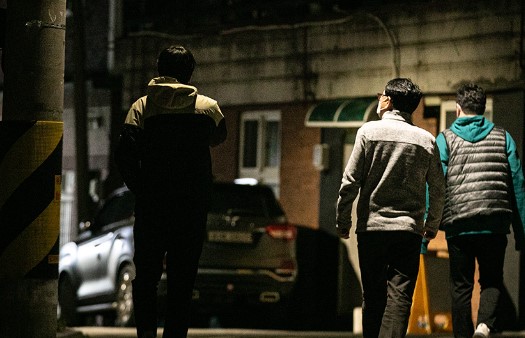Today, we’re going to take a closer look at the salary of an Officer Black Belt, a job that many people are curious about. Have you ever heard of an Officer Black Belt? It’s probably a little unfamiliar to most of you, but it’s a very important role in the safety of our society, so let’s take a deep dive into the salary and benefits of an Officer Black Belt.
What is an ‘Officer Black Belt’?

First, let’s take a quick look at what an ‘Officer Black Belt’ does. An ‘Officer Black Belt’ is an indefinite-term employee who assists probation officers in their work. Their primary job is to manage and supervise offenders who are wearing electronic devices, such as an electronic anklet or bracelet. Unlike probation officers who change departments every two to five years, Officer Black Belts stay in one location unless there are special circumstances.
How much does an ‘Officer Black Belt’ make?
Now, let’s talk about salary. As of March 2020, the compensation for a new Officer Black Belt is set at $2.7 million per month. This amount includes holiday pay and night shift pay. This translates to roughly 32.4 million KRW per year.
However, it’s important to note that this is for new employees. As you gain experience, your salary will naturally increase. Depending on your location and individual performance, your salary may vary slightly. For example, an Officer Black Belt working in a metropolitan area may earn a slightly different salary than an Officer Black Belt working in a rural area because the cost of living and transportation may be higher.
The work environment of an Officer Black Belt
Just as important as the salary is the work environment. ‘Officer Black Belts’ typically work three shifts. This can be physically demanding, as you’re on call around the clock to monitor people wearing electronic devices.
In addition, the work of an Officer Black Belt can be quite dangerous. For example, I have to be on the scene if someone tampered with their ankle bracelet and ran away, and sometimes I have to act as a “human barricade” for probation officers. Remember, you may be exposed to dangerous situations!
Working to improve the treatment of ‘Officer Black Belts’
Now that we’ve talked about salary and working conditions, what do you think? It’s a tough and dangerous job, and many ‘Officer Black Belts’ are demanding better treatment. In March 2020, the poor working conditions of ‘Officer Black Belts’ were highlighted in the media, but a year later, the situation hasn’t improved much. They’ve even filed a complaint with the National Human Rights Commission, but have received no response.
The main improvements they’re asking for include
Increased salary
There is a demand to improve the low remuneration compared to the dangerous work environment.
Risk pay
There are many requests for hazard pay to compensate for the risks they take when out in the field.
Staffing
Due to the intensity of the work, there are also requests to improve the working environment by adding more staff.
Improving working conditions
There are requests to make the work environment safer and more efficient to reduce fatigue from working three shifts and working around the clock.
I hope that these demands will be met and that Officer Black Belts will be treated better, so that they can work in a better environment, which in turn will help keep our society safe.
Job prospects for Officer Black Belts
So what does the future hold for the profession of ‘Officer Black Belt’? In fact, the demand for Officer Black Belts is likely to continue to grow as more and more people are being fitted with electronic surveillance devices to prevent crime and deter recidivism. However, it’s important to remember that this can also mean more intense work.
Advances in technology also mean that artificial intelligence (AI) could take over some of the work. For example, monitoring electronics and analyzing data can be handled more efficiently by AI. However, there will still be a need for a human touch, such as responding to the scene, communicating directly with the victim, and providing psychological support. So, while there is likely to be a need for Officer Black Belts in the future, the nature of their work may change slightly.
How to become an ‘Officer Black Belt’?
‘Officer Black Belt’ salary, everything from actual pay to better treatment
Has the job of ‘Officer Black Belt’ piqued your interest? If so, let’s take a look at how you can become an ‘Officer Black Belt’.
Eligibility requirements
To become an Officer Black Belt, you’ll need a high school diploma or higher. You don’t need to have a specific major, but law or social work majors may have an advantage.
Hiring process
The hiring process for Officer Black Belt involves a written application, a written test, a physical fitness test, and an interview. The written test consists mainly of questions that assess general knowledge and job-related knowledge.
Skills required
In addition to physical fitness, stress management and communication skills are important, as you’ll be interacting directly with people wearing electronic devices and will need to react quickly to sometimes dangerous situations.
if you’re interested in becoming an Officer Black Belt, check the Department of Justice website regularly. If a position opens up, you’ll be able to apply in no time!
Korea is now a multicultural country, which means that there are as many crimes committed by other countries as there are by Koreans. I think there will come a time when we need to hire people of other nationalities, even if it’s not right now.